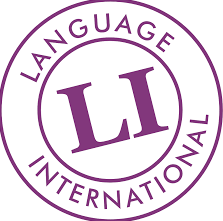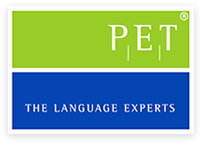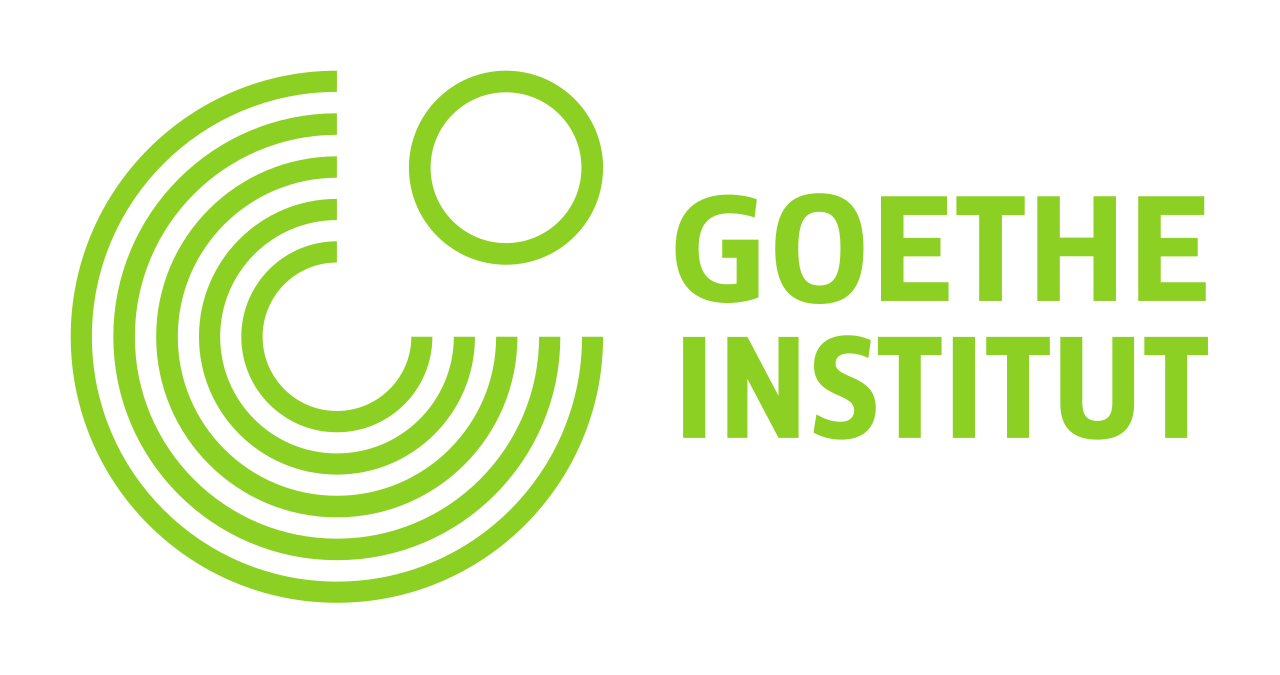
German for Nurses
In Germany, nurses are called Krankenschwester (female) or Krankenpfleger (male), and they’re in more demand than ever.
Complementing your healing skills with a few German phrases here and there may do more for your nursing career than you thought possible. You might even end up moving to another country!
Check out 140+ essential German vocabulary for nurses, plus top courses and resources for learning medical terms in German.
Contents
- Why Is It Important for Nurses to Learn German?
- What Does It Take to Become a Nurse in Germany?
- Where Can You Learn German Specifically for Nursing?
- German Vocabulary for Nurses: Critical Terms and Phrases
- And One More Thing...
Download: This blog post is available as a convenient and portable PDF that you can take anywhere. Click here to get a copy. (Download)
Why Is It Important for Nurses to Learn German?
Learning at least a few key phrases in German may be the difference between life and death for some patients.
Removing a language barrier between you and your patient cuts down on the time spent attempting to translate the symptoms they’re experiencing. When you speak to your patient in their native language, you can be much more precise—which is especially important when fine details are the difference between diagnoses.
Fluency in a second language also sets you apart from the competition. If you’re looking to practice medicine in a German-speaking country, fluency in the native language only makes sense.
What Does It Take to Become a Nurse in Germany?
Like most healthcare systems, the nursing programs in Germany focus on specialized care for various age groups.
Expect to spend at least three years studying, with the first two years spent generalizing in nursing methods. In the final year, you’ll choose to continue in general nursing or focus further on geriatrics or pediatrics. Whatever you choose, you’ll need a license to practice.
As you might’ve guessed, proficiency in the German language is also required—your German language skills must be at a B2 level minimum. Nursing candidates must either have had this training already or be willing to undergo language training. These intensive courses do their best to bring students up to speed in basic German-speaking skills.
Where Can You Learn German Specifically for Nursing?
Nurses who want to learn German to further their studies actually have quite a few resources to choose from because Germany is experiencing a shortage of nursing staff.
And, as is the case in many countries—including the United States—the German population continues to age. Those patients who didn’t grow up learning a second language require nursing staff who can meet their needs. And in some cases, that requires bringing in foreign nursing staff to fill in the gap. At least until they hire you, that is.
Language International
A quick search on Language International brings up a list of courses, schools and their locations. Each entry includes information such as course type, duration and age range. If you’re looking for just a course, Language International notes the price.
However, if you’ll be staying nearby, you can also find information about housing costs. Courses are even rated and reviewed so you can make the best decision before enrolling.
PET-Sprachen
If you’re not able to travel to a German-speaking country, you can also check out PET-Sprachen. This program addresses nursing needs directly with coursework that trains candidates for certification.
Since B2 is the required language level to work as a nurse in Germany, you can take a B2 course that’s specifically for nurses. If you’re already at B2, they also have workshops and short courses for different topics, including talking to patients and working in specific hospital departments.
Goethe-Institut
You’ve likely heard of the Goethe-Institut before. Their Goethe-Test PRO Pflege course certifies nurses with the requirements necessary to begin a career. The focus is on reading, writing and speaking German for the medical workplace. Rather than working up from the very basics, like the alphabet and numbers, students are immediately introduced to situations that they’ll encounter as a nurse.
From talking to patients and other doctors to reading and writing reports, prospective nurses will start out at the same level as every other student but will be able to adjust their learning as they demonstrate proficiency.
German Organization for Nursing Professionals
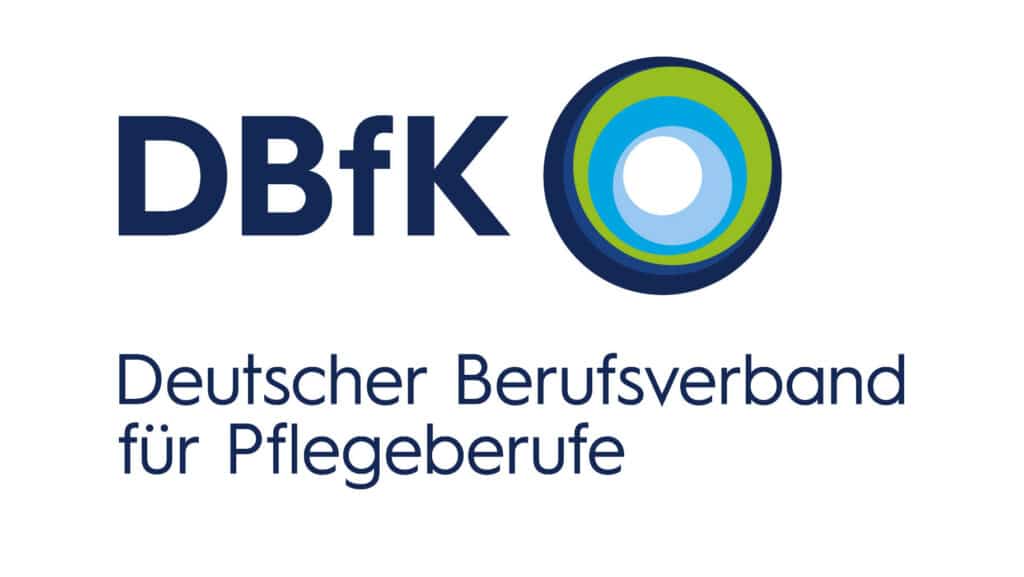
To start off networking, check out the German Nurses Association, also known as the Deutscher Berufsverband für Pflegeberufe (German Organization for Nursing Professionals). Their list of resources will prove invaluable to any nursing candidate.
Listed on their homepage are the benefits you can take advantage of if you do become a member. This isn’t some organization you simply join for its mailing list. Members are actively encouraged to participate in activities like policy-making and continued education.
German Vocabulary for Nurses: Critical Terms and Phrases
We couldn’t bring you nursing resources in German without giving you a few German medical terms to start out with. Below, you’ll find both vocabulary words (including some body parts in German) and phrases you might want to memorize if nursing is your calling.
Common Vocabulary

- der Patient (male) / die Patientin (female) — patient
- der Arzt (male) / die Ärztin (female) — doctor
- der Kopf — head
- das Herz — heart
- die Lunge (singular) — lung
- die Blutgruppe — blood type
- die Medikation — medication
- das Nahrungsergänzungsmittel — (dietary) supplement
- die Allergie — allergy
- die Krankengeschichte — medical history
- die Operation (die OP) — surgery
- die Apotheke — pharmacy
- die Impfung — vaccination
- der Blutdruck — blood pressure
- die Nadel — needle
- der Puls — pulse
- die Krankenversicherung — health insurance
- die Krankenkasse — health insurer
- das Gewicht — weight
- die Temperatur — temperature
- Was ist denn mit Ihnen heute los? — So, what’s the problem today?
- Ich bin hier, um Ihnen zu helfen. — I’m here to help you.
- Sind Sie gegen etwas allergisch? — Are you allergic to anything?
- Der Arzt/Die Ärztin ist in ein Paar Minuten bei Ihnen. — The doctor (male/female) will see you shortly.
- Nehmen Sie schon Medikamente? — Are you taking any medications?
- Haben Sie ihre die Gesundheitskarte? — Do you have your health card?
- Vielen Dank, dass Sie heute gekommen sind. — Thank you for coming in today.
Parts of the Body
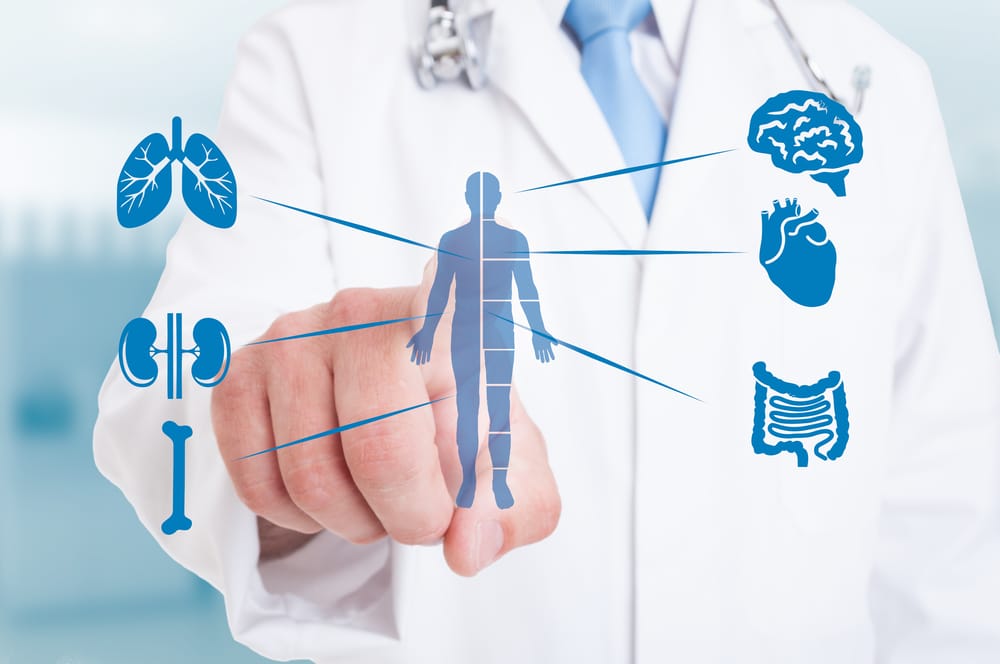
- der Körper — body
- das Gehirn — brain
- das Auge — eye
- das Ohr — ear
- die Nase — nose
- der Mund — mouth
- der Hals — neck
- die Brust — chest
- der Magen — stomach (organ)
- der Bauch — stomach/abdomen
- die Leber — liver
- die Hand — hand
- das Bein — leg
- die Haut — skin
- das Blut — blood
For more anatomy-related vocabulary in German, check out this guide:
Body Parts in German | FluentU German Blog
Learn all of the body parts in German with this comprehensive list that includes vocabulary for the head, torso, upper and lower appendages and more. Discover fun ways to…
Symptoms

- der Schmerz — pain
- die Übelkeit — nausea
- das Fieber — fever
- die Kopfschmerzen — headache
- der Husten — cough
- die Erkältung — cold
- die Verstopfung — constipation
- der Durchfall — diarrhea
- die Infektion — infection
- die Verletzung — injury
- der Hautausschlag — rash
- die Müdigkeit — fatigue
To remember these vocabulary (even before you use them in actual medical situations), getting some context helps. For example, you can look up the words and phrases above on FluentU.
FluentU takes authentic videos—like music videos, movie trailers, news and inspiring talks—and turns them into personalized language learning lessons.
You can try FluentU for free for 2 weeks. Check out the website or download the iOS app or Android app.
P.S. Click here to take advantage of our current sale! (Expires at the end of this month.)
Diseases and Conditions

- die Krankheit — disease
- der Diabetes — diabetes
- der Krebs — cancer
- die Grippe — flu
- die Erkältung — common cold
- der Herzinfarkt — heart attack
- die Lungenentzündung — pneumonia
- das Asthma — asthma
- die Allergie — allergy
- der Schlaganfall — stroke
- die Arthritis — arthritis
- die Depression — depression
- die Angststörung — anxiety disorder
- der Bluthochdruck — high blood pressure
- die Osteoporose — osteoporosis
- die Hepatitis — hepatitis
- die Masern — measles
- die Bronchitis — bronchitis
- das Sodbrennen — heartburn
- die Gastritis — gastritis
- der Nierenstein — kidney stone
- der Alzheimer — Alzheimer’s disease
- die Demenz — dementia
Medical Equipment
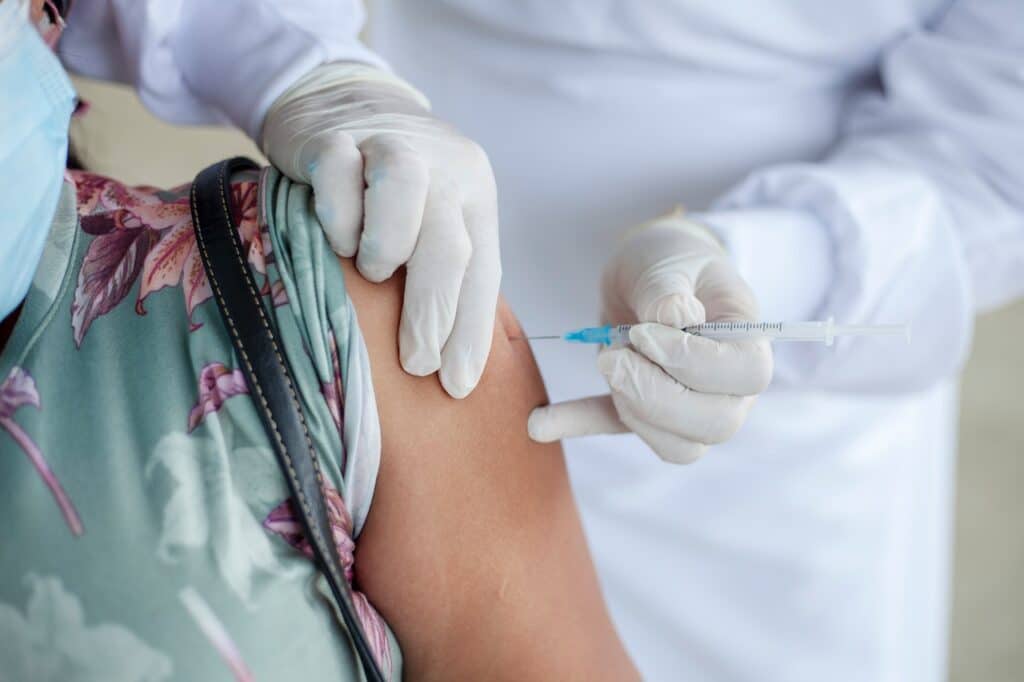
- die Spritze — syringe
- das Thermometer — thermometer
- der Verband — bandage
- die Schere — scissors
- das Stethoskop — stethoscope
- die Infusionspumpe — infusion pump
- der Defibrillator — defibrillator
- die Maske — mask
- der Rollstuhl — wheelchair
- das Blutdruckmessgerät — blood pressure monitor
- das Röntgengerät — X-ray machine
- der Ultraschall — ultrasound
- das EKG-Gerät — EKG machine
- der Computertomograph — CT scanner
- der Kernspintomograph — MRI machine
Areas of the Hospital

- das Krankenhaus — hospital
- die Notaufnahme — emergency room
- die Intensivstation — intensive care unit
- die Station — ward
- die Chirurgie — surgery
- das Labor — laboratory
- die Apotheke — pharmacy
- der Krankenwagen — ambulance
- das Krankenzimmer — patient’s room
- der Operationssaal — operating room
- der Empfang — reception
- der Aufenthaltsraum — lounge/waiting room
Doctors

- der Arzt / die Ärztin — doctor (male/female)
- der Chirurg / die Chirurgin — surgeon (male/female)
- der Kinderarzt / die Kinderärztin — pediatrician (male/female)
- der Kardiologe / die Kardiologin — cardiologist (male/female)
- der Orthopäde / die Orthopädin — orthopedic doctor (male/female)
- der Radiologe / die Radiologin — radiologist (male/female)
- der Neurologe / die Neurologin — neurologist (male/female)
- der Gynäkologe / die Gynäkologin — gynecologist (male/female)
- der Anästhesist / die Anästhesistin — anesthesiologist (male/female)
- der Dermatologe / die Dermatologin — dermatologist (male/female)
Medications and Drugs

- das Medikament — medication
- das Rezept — prescription
- die Tablette — tablet
- die Pille — pill
- die Kapsel — capsule
- der Sirup — syrup
- die Salbe — ointment
- das Antibiotikum — antibiotic
- das Schmerzmittel — painkiller
- die Spritze — injection
- der Impfstoff — vaccine
- die Dosis — dose
- die Nebenwirkung — side effect
Phrases for Talking to Patients

- Wie fühlen Sie sich heute? — How are you feeling today?
- Wo haben Sie Schmerzen? — Where do you have pain?
- Auf einer Skala von 1 bis 10, wie stark sind Ihre Schmerzen? — On a scale of 1 to 10, how strong is your pain?
- Ich werde jetzt Ihren Blutdruck messen. — I am going to take your blood pressure now.
- Ich werde Ihnen jetzt eine Spritze geben. — I’m going to give you an injection now.
- Sie müssen diese Medikamente dreimal täglich einnehmen. — You need to take these medications three times a day.
- Bitte bleiben Sie ruhig liegen. — Please stay calm and lie still.
- Ich helfe Ihnen beim Aufstehen. — I’ll help you to get up.
- Ich hole gleich den Arzt/die Ärztin. — I will get the doctor (male/female) right away.
- Rufen Sie mich, wenn Sie etwas brauchen. — Call me if you need anything.
- Es ist Zeit für Ihre Medikamente. — It’s time for your medication.
- Wir müssen eine Blutprobe entnehmen. — We need to take a blood sample.
- Wir werden Sie jetzt in den Operationssaal bringen. — We are going to take you to the operating room now.
- Sie werden bald entlassen. — You will be discharged soon.
Since there’s a lot of medical vocabulary to learn, if you ever find yourself lacking a German word or phrase, you can also try circumlocution (using words you know to describe something rather than striving for a one-to-one translation). It’s a bit like charades but can work wonders if you’re not sure what else to do.
Take a break from your medical textbooks and pick up a few German phrases. After all, knowing some German vocabulary for nurses can help set you apart from others when it comes to interviews, resumes and applications.
There’s definitely a need for German-speaking nurses, both abroad and at home. Aging populations may express themselves better in German, and the ability to speak intimately with them could prove invaluable!
And One More Thing...
Want to know the key to learning German effectively?
It's using the right content and tools, like FluentU has to offer! Browse hundreds of videos, take endless quizzes and master the German language faster than you've ever imagine!
Watching a fun video, but having trouble understanding it? FluentU brings native videos within reach with interactive subtitles.
You can tap on any word to look it up instantly. Every definition has examples that have been written to help you understand how the word is used. If you see an interesting word you don't know, you can add it to a vocabulary list.
And FluentU isn't just for watching videos. It's a complete platform for learning. It's designed to effectively teach you all the vocabulary from any video. Swipe left or right to see more examples of the word you're on.
The best part is that FluentU keeps track of the vocabulary that you're learning, and gives you extra practice with difficult words. It'll even remind you when it’s time to review what you’ve learned.
Start using the FluentU website on your computer or tablet or, better yet, download the FluentU app from the iTunes or Google Play store. Click here to take advantage of our current sale! (Expires at the end of this month.)
